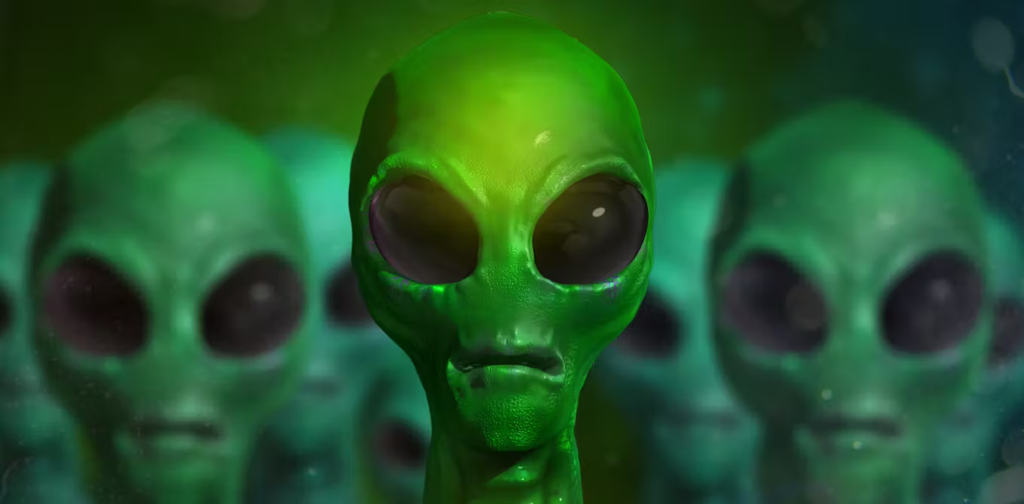Continúa después de la publicidad.
In the vast expanse of the cosmos, our blue-green planet, teeming with life, appears as a rare jewel. But is Earth truly unique? Are we alone in this sprawling universe, or does extraterrestrial life lurk in the farthest reaches of space? This age-old question has intrigued scientists and laymen alike. As Dr. Ana Lucia, a Biotecnologist with a penchant for precision and clarity, I invite you on a journey to uncover the mysteries and theories surrounding extraterrestrial life.
The late Carl Sagan, esteemed cosmologist and astronomer, once said, “The universe is a pretty big place. If it’s just us, seems like an awful waste of space.” Could there be validity in Sagan’s thought-provoking assertion? Our voyage will take us beyond our solar system, exploring the vast unknown in search of potential answers.
Continúa después de la publicidad.
Diving into the ocean of scientific literature and theories, we’ll explore the diverse array of opinions and hypotheses that have emerged over the years. From the Drake Equation and the Fermi Paradox to astrobiological perspectives on extremophiles, our exploration will delve into some of the most profound questions humanity has ever posed.
Will our exploration yield definitive answers? Perhaps not. But it is in the relentless pursuit of knowledge that we grow and evolve. As we journey through the cosmos, you, dear reader, are an integral part of this exploration. Your curiosity and passion for understanding are what drive us to probe further, to question deeper, and to strive harder.
Continúa después de la publicidad.
So, come aboard on this intriguing expedition into the enigma of extraterrestrial life. Are we truly alone in the universe, or are we just yet to discover our cosmic neighbors? Let’s delve into the theories, scrutinize the evidence, and perhaps, we might find ourselves a step closer to answering this profound question. The universe is waiting. Let’s embark on this journey together.
The Fascinating World of Extraterrestrial Life Theories
In our quest to understand the universe, one question continues to intrigue us – are we alone? Theories about extraterrestrial life provide a fascinating insight into our collective curiosity and scientific understanding. From ancient alien theories to modern scientific conjectures, the discourse around extraterrestrial life is as varied as it is intriguing.
Extraterrestrial Life: The Ancient Theories
It may surprise you to learn that the notion of extraterrestrial life is not a new concept. Ancient cultures around the world have been fascinated by the stars and the potential for life beyond Earth.
For example, the Ancient Greeks proposed the existence of other worlds, with philosophers such as Anaximander suggesting that there were infinite worlds with their own unique forms of life. Similarly, Indian cosmological texts reference numerous universes, each with its own celestial beings.
Modern Scientific Theories
Moving to more recent times, scientific advancements have allowed us to probe deeper into the mysteries of the universe. Astronomers and astrophysicists have proposed several theories about extraterrestrial life.
Publicaciones relacionadas:
- The Drake Equation: In the 1960s, astronomer Frank Drake devised an equation to estimate the number of advanced civilizations in our galaxy. This equation considers factors such as the rate of star formation, the fraction of those stars with planetary systems, and the likelihood of intelligent life developing.
- The Fermi Paradox: Named after physicist Enrico Fermi, this paradox raises the question – if there are a multitude of advanced extraterrestrial civilizations in the Milky Way galaxy, why haven’t we detected any signs of them?
- The Zoo Hypothesis: This theory suggests that extraterrestrial civilizations are aware of us but choose not to interact, much like zookeepers with animals in a zoo.
- The Rare Earth Hypothesis: This theory posits that the emergence of complex multicellular life on Earth required an unlikely combination of astrophysical and geological events and circumstances. Therefore, such life forms might be rare in the universe.
La búsqueda de vida extraterrestre

The search for extraterrestrial life continues to be a hotbed of scientific exploration. Organizations such as NASA and SETI (Search for Extraterrestrial Intelligence) are using sophisticated technology to search for signs of life. This includes the study of exoplanets (planets outside our solar system), and the search for biosignatures and technosignatures.
Despite the lack of concrete evidence thus far, many scientists remain optimistic. After all, the universe is vast and largely unexplored. As astronomer and author Carl Sagan once said, “The universe is a pretty big place. If it’s just us, seems like an awful waste of space.”
Implications of Discovering Extraterrestrial Life
Beyond the scientific excitement, the discovery of extraterrestrial life would have profound implications. It would reshape our understanding of our place in the universe and challenge many philosophical and religious beliefs. It could also prompt us to reevaluate how we treat our own planet and its inhabitants.
So, are we alone in the universe? We may not have the answer yet, but our quest for knowledge continues. After all, as Arthur C. Clarke, a British science fiction writer, once said, “Two possibilities exist: either we are alone in the Universe or we are not. Both are equally terrifying.”
Conclusión
In conclusion, exploring the theories about extraterrestrial life, and the profound question, “Are we alone in the universe?” is not merely an exercise in intellectual curiosity. It holds significant implications for our understanding of life, its origins, and its prevalence in the cosmos. Scientific pursuit of these theories stimulates progress in a multitude of disciplines including astrophysics, biology, chemistry, and planetary science. The search for extraterrestrial life compels us to stretch the boundaries of our knowledge, sharpen our scientific tools, and refine our analytical methods.
Moreover, it invites us to reflect upon our place in the universe, prompting us to reconsider our perceptions of life and existence. It challenges us to envision life forms that may not conform to our terrestrial templates, and to acknowledge the vastness and diversity of the universe. Whether we eventually discover life beyond Earth or not, the exploration itself enriches our scientific and philosophical perspectives, and enhances our capacity for innovation and discovery.
The discourse on extraterrestrial life is more than an academic exercise; it is a testament to the indomitable human spirit of inquiry and exploration. It underscores our ceaseless quest for knowledge, our insatiable curiosity about the unknown, and our unwavering determination to unravel the mysteries of the universe. As we delve deeper into this intriguing realm, we not only glean valuable scientific insights but also cultivate our capacity for wonder, resilience, and humility.
As we conclude, let us leave you with a question to ponder: What would the discovery of extraterrestrial life mean for you, personally? How would it change your perception of life, the universe, and our place in it? We encourage you to engage with these questions and share your thoughts. Your perspectives enrich the discourse and contribute to the collective understanding of this fascinating subject.
Thank you for investing your time in exploring these theories with us. We hope that you have found the journey as enlightening and stimulating as we have. The pursuit of knowledge is a collective endeavor, and your engagement is a valuable part of it. We look forward to continuing this journey of discovery together, propelled by curiosity, guided by science, and inspired by the boundless possibilities of the universe.
Remember, the universe is full of wonders waiting to be discovered, and every one of us has a part to play in this grand cosmic journey. The quest continues, and the answers, as always, are out there. Until next time, keep exploring, keep questioning, and keep marveling at the wonders of the cosmos.




